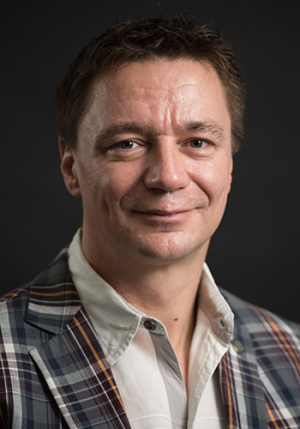While the benefits of biofuels are clear, the economics of their production hinder their widespread use. A professor with the University of Houston Cullen College of Engineering, however, has won a grant to conduct research that could make biofuels competitive with oil based fuels like gasoline and diesel.
Lars Grabow, assistant professor of chemical and biomolecular engineering, was awarded the two-year $100,000 grant from the American Chemical Society’s Petroleum Research Fund to better understand catalysts that remove sulfur from crude oil through a process known as hydrodesulfurization (HDS). He will use what he learns to help create new catalysts for the production of transportation fuels, including biofuels.
Typically, sulfur is removed from crude oil by injecting it with high-pressure hydrogen and then exposing it to metal sulfide catalysts."All the oil fractions that go through a refiner have to pass over an HDS catalyst to remove the sulfur," said Grabow.
While HDS is generally well understood, Grabow will seek to gain new insights into this process by using an electronic structure method to simulate it down to the behavior of individual electrons.
He will then use what he learns to devise principles for the removal of oxygen, or hydrodeoxygenation (HDO) from pyrolized biomass, a mixture of solids and liquids that results from heating biofuel crops, such as algae.
The presence of oxygen in biomass dramatically lowers its heating value, Grabow said, resulting in less powerful fuels. Removing this oxygen, therefore, is essential for biofuels to be competitive with petroleum-based fuels like gasoline and diesel.
"In my opinion, this HDO process is very similar to HDS. Sulfur and oxygen are chemically a lot alike; they’re in the same group on the periodic table. And in both processes I’m using high-pressure hydrogen," he said. "The idea is to find parallels between the well-understood HDS process and transfer that knowledge to HDO."
While it took decades to develop the ideal catalysts used in HDS today, Grabow hopes that his research could cut down the development time for HDO catalysts to just a few years.
"There’s just really no good catalyst out there right now to do this," he said. "So a lot of the cost of biofuels is incurred by performing this upgrade process. If we can find a good catalyst that works as well as the ones used in the desulfurization of crude oil fractions, it should drive down the costs of biofuels significantly."
The grant is the second piece of good news Grabow has received in recent months. In July, he was named a winner of a Young Scientist Award at the International Congress on Catalysis (ICC).
Held once every four years, the ICC is one of the largest catalysis conferences in the world, and only approximately 50 individuals are honored with the Young Scientist Award at each gathering.
Grabow received the award in recognition of a paper he submitted to the conference and for his impressive accomplishments as a researcher in the early stages of his career. These include the ACS grant; papers published in the highly regarded journals Science and Angewandte Chemie; and two papers published in ACS Catalysis, including a carbon monoxide oxidation paper published with his first graduate student as well as an article on methanol synthesis.
